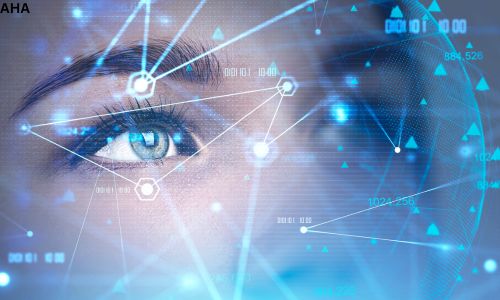A Journey Through Time: Unveiling the History of Artificial Intelligence
Artificial intelligence (AI) has become a ubiquitous term, woven into the fabric of our daily lives. But the concept of intelligent machines has captivated humanity for centuries. This blog post delves into the fascinating history of AI, tracing its evolution from philosophical musings to the sophisticated algorithms shaping our world today.
Early Inklings: The Seeds of Artificial Thought (Antiquity – 19th Century)
- Mythology and Machines: Ancient myths from Greece (Hephaestus’ automatons) and China (The Liezi’s mechanical man) hint at the human fascination with artificial beings.
- Philosophical Ponderings: Philosophers like René Descartes pondered the possibility of machines mimicking human thought processes. The question of whether machines could truly “think” became a central theme.
The Dawn of the Field: Birth of a New Discipline (1900s)
- Alan Turing and the Turing Test (1950): Considered the father of theoretical computer science, Alan Turing proposed the Turing Test – an imitation game to determine a machine’s ability to exhibit intelligent behavior equivalent to, or indistinguishable from, that of a human.
- The Dartmouth Workshop (1956): John McCarthy, Marvin Minsky, Nathaniel Rochester, and Claude Shannon organized a landmark workshop at Dartmouth College, officially coining the term “artificial intelligence” and sparking a surge of research interest.
Early Approaches: From Logic to Learning (1950s – 1970s)
- The Rise of Symbolic AI: Early AI research focused on symbolic AI, attempting to replicate human reasoning through logic and symbol manipulation. Programs like the Logic Theorist aimed to solve problems by mimicking human thought processes.
- The Perceptron and the Learning Revolution: Frank Rosenblatt’s perceptron, a simple neural network, marked a shift towards machine learning. This model laid the foundation for algorithms that could learn from data without explicit programming.
The AI Rollercoaster: Triumphs, Challenges, and Renewals (1980s – Present)
- The AI Winter (1970s – 1980s): Limited computing power and overambitious expectations led to a period of disillusionment with AI research funding drying up.
- Expert Systems and the Rise of Narrow AI: Expert systems, programs with domain-specific knowledge, emerged as successful applications of AI in areas like medical diagnosis and financial analysis. These systems highlighted the potential of Narrow AI (weak AI) for performing specific tasks with exceptional proficiency.
- The Rise of Deep Learning and the AI Renaissance (1980s – Present): The development of powerful computing resources and advancements in deep learning algorithms fueled a resurgence of interest in AI. Deep learning models, inspired by the structure and function of the human brain, achieved breakthroughs in areas like image recognition and natural language processing.
The Evolving Landscape: AI Today and Beyond
- AI’s Impact Across Industries: AI is transforming various sectors, from healthcare and finance to manufacturing and transportation. Applications range from self-driving cars (still under development) to AI-powered medical diagnosis tools and chatbots providing customer service.
- Ethical Considerations and the Future of AI: As AI becomes more sophisticated, ethical considerations regarding bias, fairness, and transparency become paramount. Responsible development and human oversight are crucial for ensuring AI benefits humanity.
- The Road Ahead: Collaboration and Continuous Advancement: The future of AI lies in human-AI collaboration, leveraging the strengths of both to achieve breakthroughs. Continuous research and development will push the boundaries of what’s possible, shaping a future where AI serves as a powerful tool for good.
A Legacy of Innovation: The Enduring Pursuit of Artificial Intelligence
The history of AI is a captivating narrative of human ingenuity and the relentless pursuit of creating intelligent machines. From philosophical musings to the sophisticated algorithms of today, AI continues to evolve, shaping our world and holding the potential to revolutionize the future. As we move forward, understanding the history of AI equips us to navigate its possibilities and challenges, ensuring this technology serves as a force for progress and positive change.



